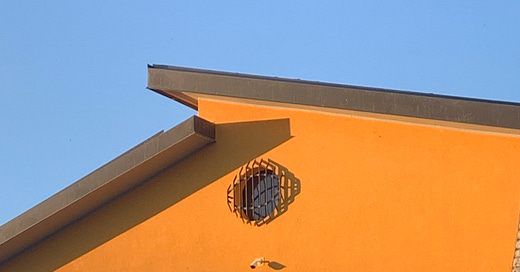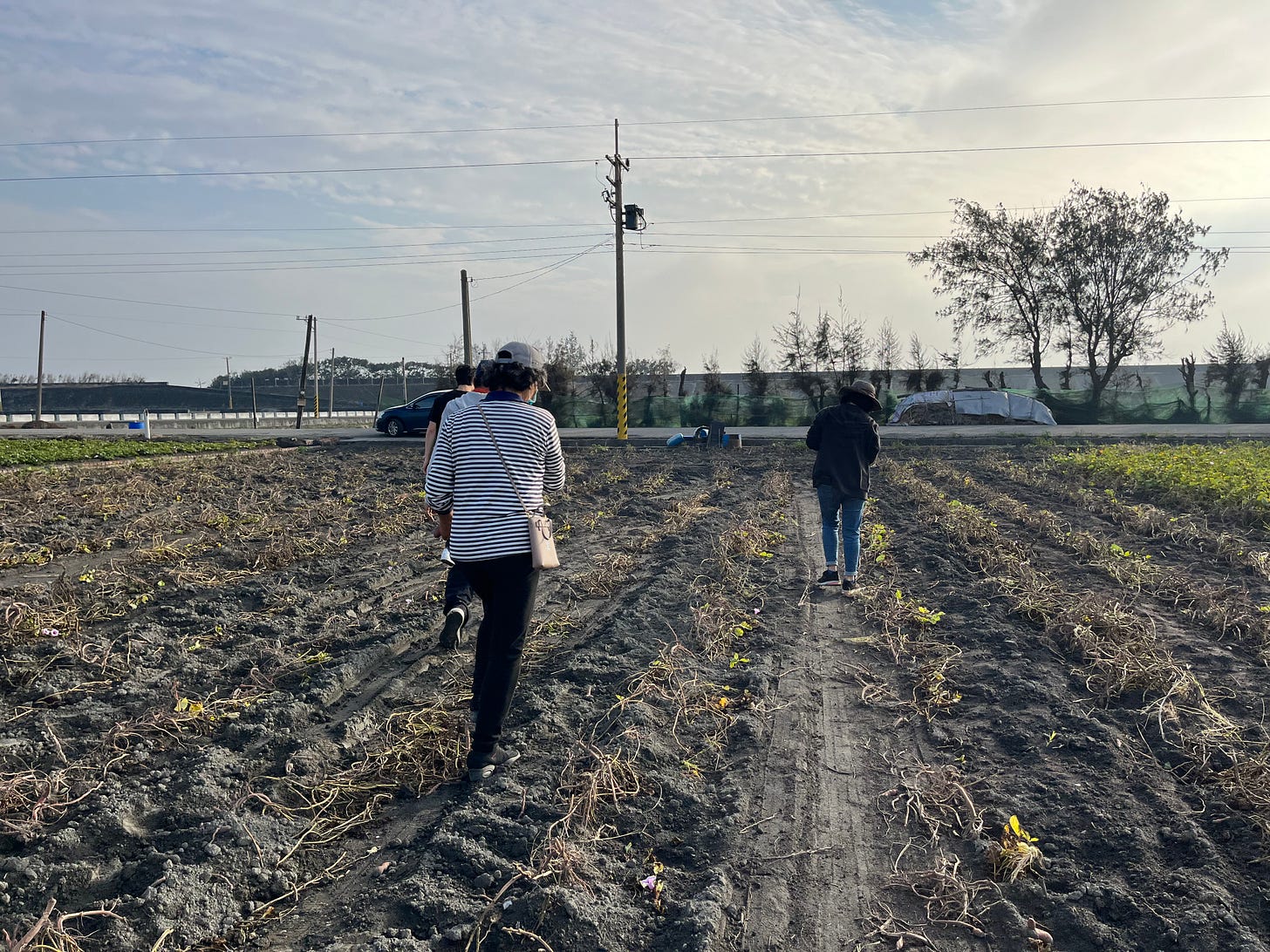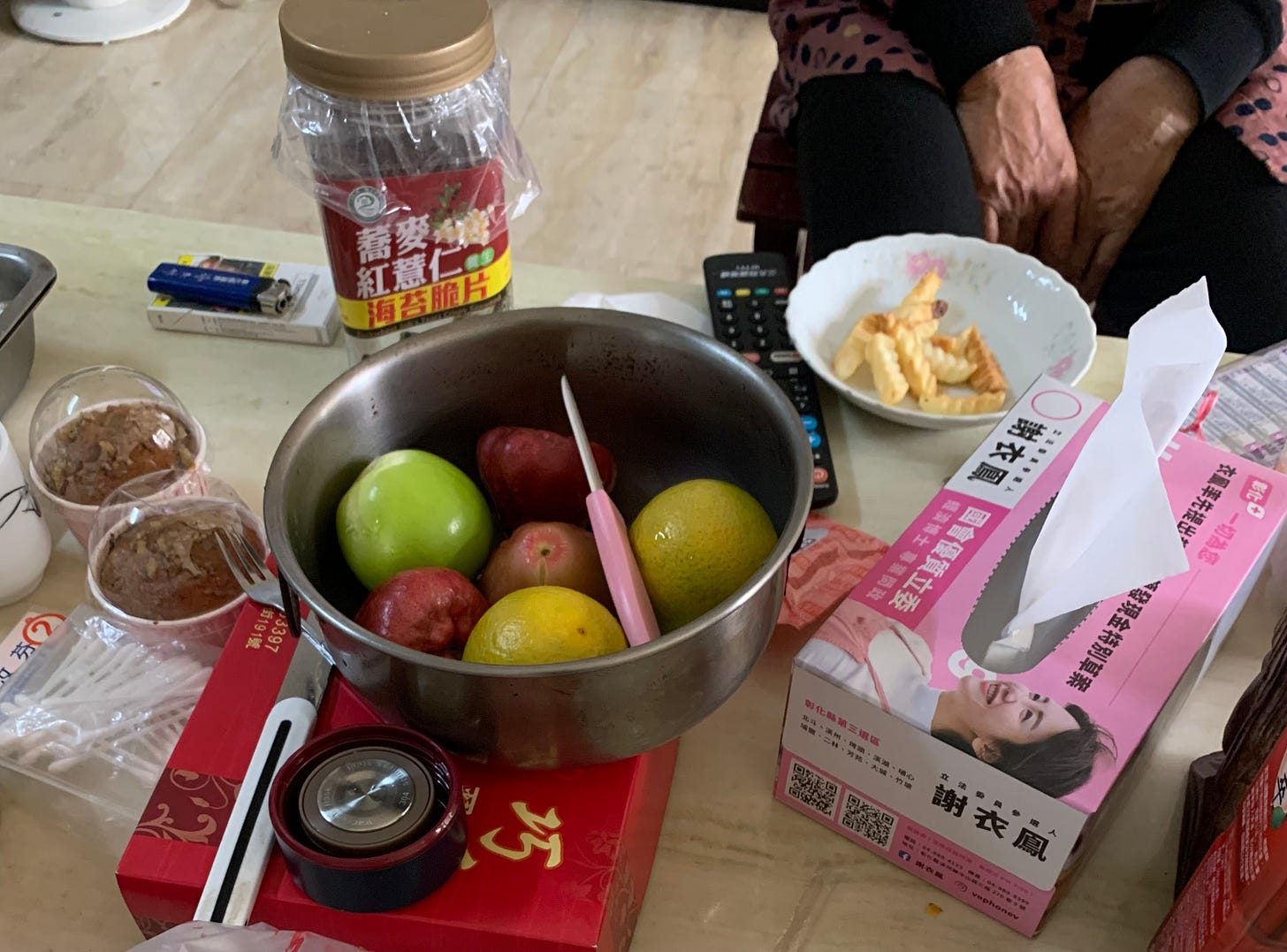How to choose persimmons
Persimmons and glowing incense sit in front of cross-legged Buddhist statues, most of which I do not know the names of. Whenever we walk by an altar in a storefront, my grandma pauses on the sidewalk to bow in its direction. She must see something different than me—my brain only registers bowls of fruit and smoky air.
My parents did not build their house in America with Buddhist bricks. I don’t think there was much room in their suitcases to bring them with. The thought of committing myself to Buddhism has crossed my mind a few times before—never for the right reasons. While my friends and classmates went to youth group on Wednesdays, I wondered if I too should pick up a religion on the way home from school. Maybe Buddhism would be the last accessory to make me feel whole, the missing puzzle piece. No sooner does the thought enter my brain is it swiftly seen out. Frankly, I am too busy thinking of American breakfast to remember putting fruit on the altar.
I sometimes wonder what my grandma thinks of when she looks at me. I wonder whether she actually sees her own grandson, or just some strange entity occupying his body. When her eyes flicker in my direction, I wonder if she still sees her own skin and blood through the foreignness in my walk. Maybe she knows that it is all illusory—my best effort to present her with what I think is a Taiwanese grandson. Maybe, when my mother left for America, she already grieved this person I wish I was.
Peeking into her mind would do me no good. Her brain thinks in a dialect I do not speak. Its contents are shielded by thick walls made from a different tongue. At home I sometimes hear my parents speaking in that language I call grandma and grandpa. In low voices, they shed their Mandarin coats and waltz to music I can not hear. Their voices float through the drywall, but the words melt before reaching my brain. I ask why they didn’t speak it to us growing up. They say it was hard enough to unpack one language into two little children.
My family reassures me that Taiwanese is fading anyway. Most of the young kids in big cities don’t even understand it either. But I hear how swiftly it rolls off their tongues. I have peeked in their luggage and found it neatly tucked away there, so maybe, it can also fit into mine.
I say I want to pick up a language, like someone says they want to pick up that dollar they find on the street, but it is no small undertaking. As I wade deep into Italian waters, I realize I am taking a slight detour and contemplate heading back to shore before I get too far. Surely a tongue that still trips on Mandarin does not qualify to enter this next race. A 7-stroke tonal tongue that has no standardized method of teaching and no writing system. A language with little use outside of the house I visit (at most) twice a decade. Still though, I really want to have that dollar.
Sometimes I wish I didn’t have to be the one locked outside peeking through the keyhole. I wish I did not have to be the one begging someone to open the door or crack a window. I wonder why I have been exiled to the corner of the conversation, where I can only sit and eat persimmons from the coffee table. I try to tell them from behind my glazed over eyes that I’m still alive, but my jaw has been soldered shut.
I am in constant need of reminding where I am lacking and where I am not. I want someone to notice every time I’m falling behind and pull me on track, but I often forget everybody already has trouble enough carrying their own baggage. My own suitcase is an overflowing mess of broken Mandarin and other assorted crumbs, which I frantically stuff into my pockets in hopes of still making the flight. Sometimes my brain is so fried that I can not stand the people I want to feel closer to, and I hide away in my room unable to learn another word. Sometimes I hear the sounds so much they morph into something so harsh and loud that I wish to sew my ears shut, and I begin to wonder if hand signals may be a more suitable medium for this language. And then my grandma might say something and laugh loudly, and suddenly there is no language more worth learning. Learning to walk has always been easier when you’re chasing somebody seven steps down the hall.
Autumn arrives suddenly in Italy and the sun is shorter than I imagine here. At night the street lights paint the houses various colors of persimmons. You can buy pack of three at the grocery store. They are so ripe, the slightest touch could cause the skin to split open. The November light makes their translucent dark orange flesh almost look like mid-summer tomatoes. Teetering on this line between ripe and rotten, when they have more in common with jam than with fruit, is the sweetest you can get a persimmon, though I prefer them before they get to this stage. Before they have gone too mushy and delicate, when I can still toss one around in my hand without spilling the fruit everywhere. When the flesh is just soft enough for my teeth to melt through like butter, and just a touch of sweetness to leave me craving another. I haven’t taken the opportunity to try them here yet, but I am hopeful. Maybe persimmons planted here will still taste the same as home.






